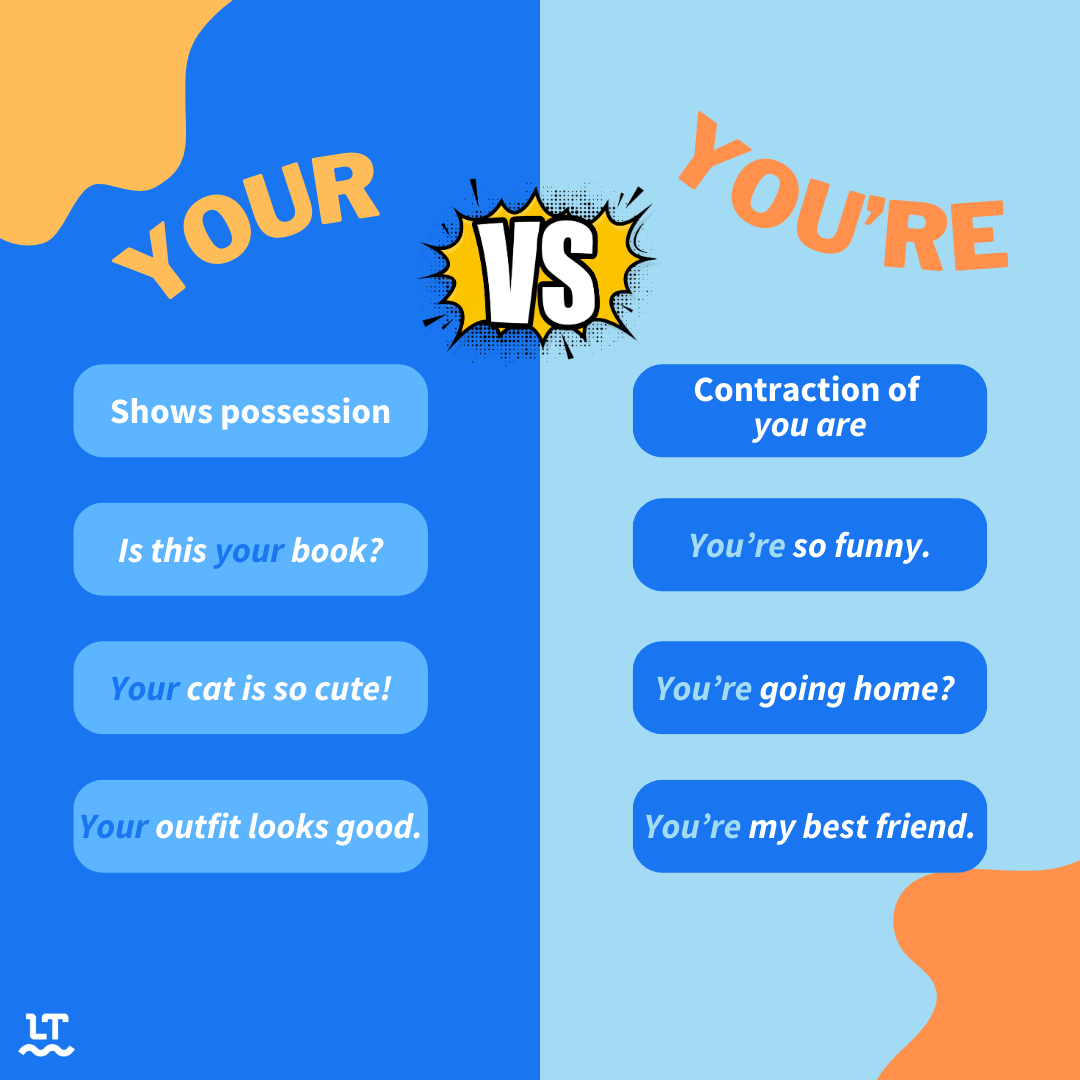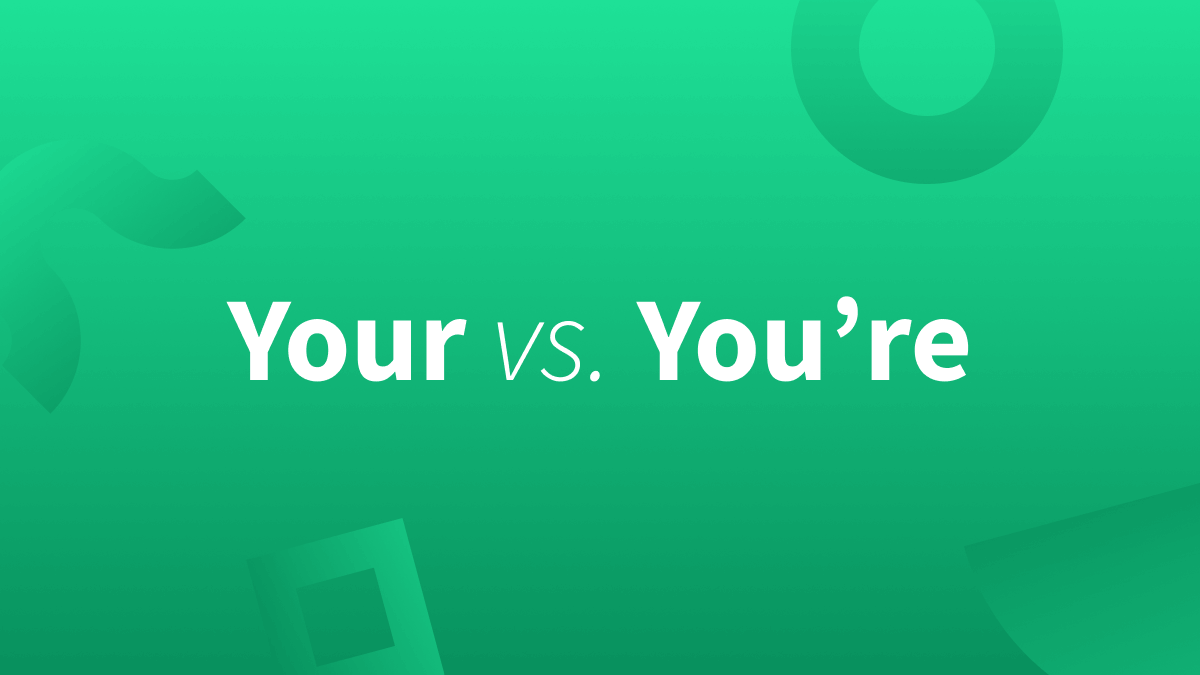“Your” vs. “You’re”
Your is a possessive adjective, whereas you’re is a contraction of you are.
- Your dog is extremely well-behaved.
- You’re doing a great job training that dog.
When To Use “Your” and “You’re”
Your and you’re have different definitions, different spellings, but the same pronunciation. In other words, they’re homophones. This is the perfect recipe to cause confusion when trying to write and differentiate these words.
But don’t worry. We’re going to teach you what these two words mean and when to use them correctly so that you’re never in doubt about your spelling abilities ever again.
What Does “Your” Mean?
Your is used to show possession.
Your hair looks lovely today.
I hope your day goes well.
When is your next available appointment?
Remember, possessive adjectives, like its, are not spelled with an apostrophe.
What Does “You’re” Mean?
You’re is the contracted form of you are.
You’re right, it’s cold outside.
This is why you’re at the top of the class.
You’re never going to believe what happened.
If ever you’re in doubt about which word to use, replace the word in question with you are. If the sentence still makes sense, you’ve got it right!
Your Christmas decorations look great.
You are Christmas decorations look great.
You’re going to the show, right?
You are going to the show, right?
Your explanation was helpful.
You are explanation was helpful.
There’s no way you’re buying that.
There’s no way you are buying that.
“Your” and “You’re” Examples
Do you need more examples of sentences with your and you’re? Here you go:

Understanding the Difference Between “Your” and “You’re”
Imagine one day you want to catch up with a friend, so you message her asking “what’s on your mind?” If she answers, “your dinner,” be delighted that she may be treating you to some food soon. On the other hand, if she replies, “you’re dinner,” maybe it’s best to steer clear from her for a bit.
In all seriousness, mistakes happen, even if you’re aware of the differences between your and you’re. LanguageTool is an intelligent writing assistant that can detect various types of errors, regardless of how common or complex. It supports more than 30 languages and is free to try:

